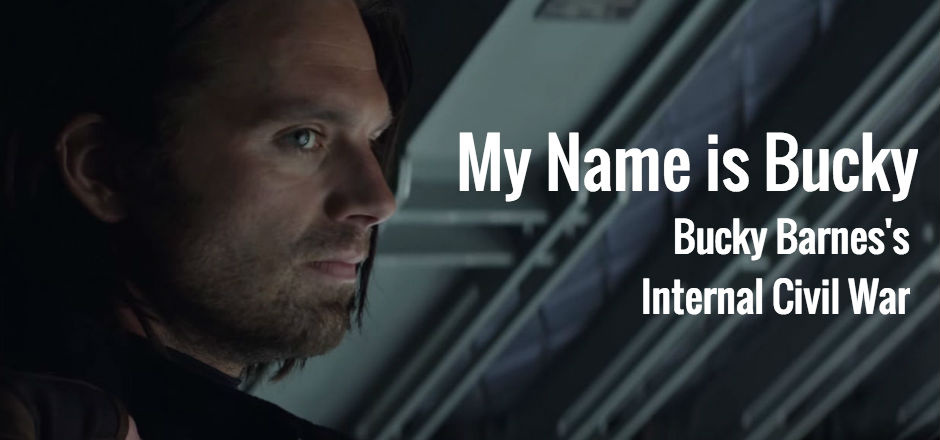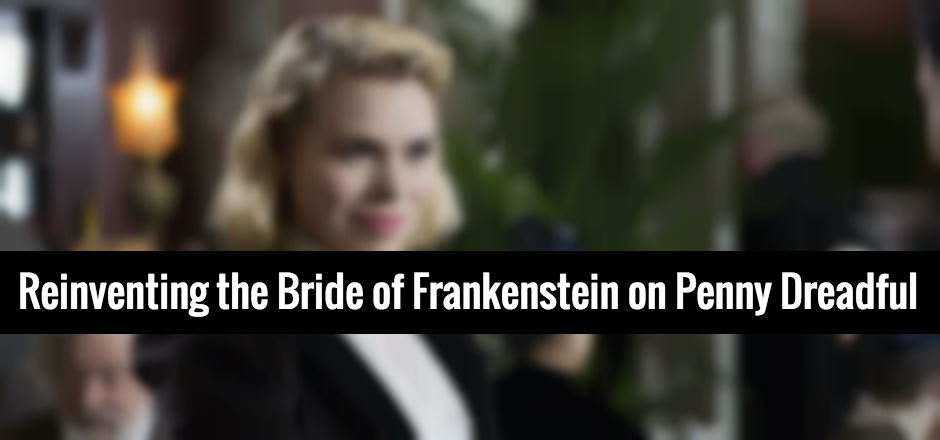Holy shit, Bucky Barnes.
There’s gonna be spoilers ahead for Captain America: Civil War, because, I mean, duh.
Anyway, like I was saying: holy shit, Bucky Barnes.
Here at Girls in Capes, May is the Internal Conflict issue. At first glance, reviewing Civil War during this issue feels like a no-brainer: Steve Rogers and Tony Stark are on opposite sides of a serious issue, and the Avengers get more or less divided down the middle when they’re forced to choose a side. It’s internal conflict dialed up to 11. The whole movie thrives on it.
But guys, Bucky Barnes.
Bucky received a lot more screen time in this movie than he did in Captain America: The Winter Soldier, and for that I’m eternally grateful because we got more flashbacks to when Bucky was under Hydra’s control. We had a good taste of how little free will he had in Cap 2, but in this movie it’s apparent: there’s nothing left of Steve’s best friend when the Soldier is awake. And even when the Soldier’s not awake? He’s not quite the Bucky that Steve knows either.
[blocktext align=”right”]Holy shit, Bucky Barnes.[/blocktext]When we first meet Bucky in Civil War — discounting the gut-wrenching opening flashback scene — he’s incognito in Bucharest, innocently trying to buy some plums (seriously, can’t a guy get his antioxidants in peace anymore?) when someone recognizes him from a newspaper article: the Winter Soldier is allegedly responsible for the bombing of the United Nations building in Vienna, resulting in the deaths of 12 people including King T’Chaka of Wakanda.
He’s eventually captured and taken in by the UN, who of course see him as their biggest current threat and all but chain him to a boat anchor to make sure he doesn’t get away. Bucky accepts being taken prisoner, accepts being locked up… he even accepts being evaluated by a psychiatrist (a sneaky Helmut Zemo), up until said “psychiatrist” starts asking questions that Bucky doesn’t want to answer — namely, talk about the terrible things he’d done as the Soldier and the people he’d killed.
These moments of Bucky’s avoidance and refusal to speak about his past all add up to what can basically be called ‘The Tragedy of Bucky Barnes.’ He knows exactly what he did as the Soldier; he remembers all of it, which he himself admits to Tony during the final fight when Tony asks him, “Do you even remember them?” (referring to the heart wrenching reveal that Bucky was the one who killed Tony’s parents 25 years ago) and Bucky replies, “I remember all of them.”
[blocktext align=”left”]He knows exactly what he did as the Soldier; he remembers all of it.[/blocktext]Bucky remembers. Whether or not he remembers every little detail doesn’t matter, because what does matter is that he struggles throughout the whole movie to solve the puzzle that is himself. Is he deserving of a fresh start? Is he deserving of Steve’s help trying to stop Zemo? Is he deserving of freedom from the clutches of the UN? Is he deserving, even, of escaping Tony’s emotional wrath at the end of the movie?
If you were to ask Bucky himself, the answer is no. He even tells Steve he doesn’t think he’s worth all the trouble that he’s putting Steve through: fighting the other Avengers, going rogue, essentially becoming a criminal in the process.
Bucky blames himself for the Soldier’s actions. I’ve written before that Bucky and the Winter Soldier are two separate entities and should be treated as such, so it’s sad to watch Bucky punish himself for something that even Steve says isn’t his fault. Once brainwashed, he had no control over his own actions. Steve knows this. The audience knows this.
Bucky acknowledges this sentiment, but he ultimately places the blame on his own shoulders, not Hydra’s. It was his hands that carried out all of these terrible acts, therefore he reasons that it’s his burden to bear.
[blocktext align=”right”]He’ll never be the same Bucky again, Steve’s best friend from Brooklyn.[/blocktext]At the end of Winter Soldier, the post-credits scene showed Bucky at the Captain America exhibit in the Smithsonian Museum, staring at his own plaque and reading his own biography, learning about himself. He ended that movie trying to figure out the enigma that is James Buchanan Barnes. If Civil War is any indication of how far on that journey he’s gone, it seems he still hasn’t figured it out yet. He’s not entirely Bucky — he’ll never be the same Bucky again, Steve’s best friend from Brooklyn. He’s not the Soldier either — he has his free will again, at least to some extent, and he has his own consciousness.
But there are still hidden traps and secrets in his own mind, and he doesn’t trust himself because of this, which ultimately leads to the Civil War post-credits scene where he’s put back under the ice at his own request. (Cue me screaming into my clenched fist.)
So who is Bucky Barnes in this movie? Actor Sebastian Stan does a good job of summing it up himself: “You know, here’s the guy when you merge the two. This is what came out. To me, he’s never really going to be Bucky Barnes again. There’s going be recognizable things about him, but his path through the [experiences of] Winter Soldier is always going be there, haunting him. He recognizes his past, but at the same time he’s sort of a new character, too.”
Bucky will always have the shadow of the Winter Soldier chasing him, and that’s an internal ‘civil war’ if I ever saw one.
—
Gabby Taub, the Fantasy Reviewer at Girls in Capes, is a recent graduate of New York University. She enjoys reading, writing, watching TV, and spending time getting lost among the bookshelves at Strand Bookstore.


![[Guest] Empathy is Power for Supergirl’s Women](https://girlsincapes.com/wp-content/uploads/2017/03/Empathy-is-Strength-Header.jpg)


